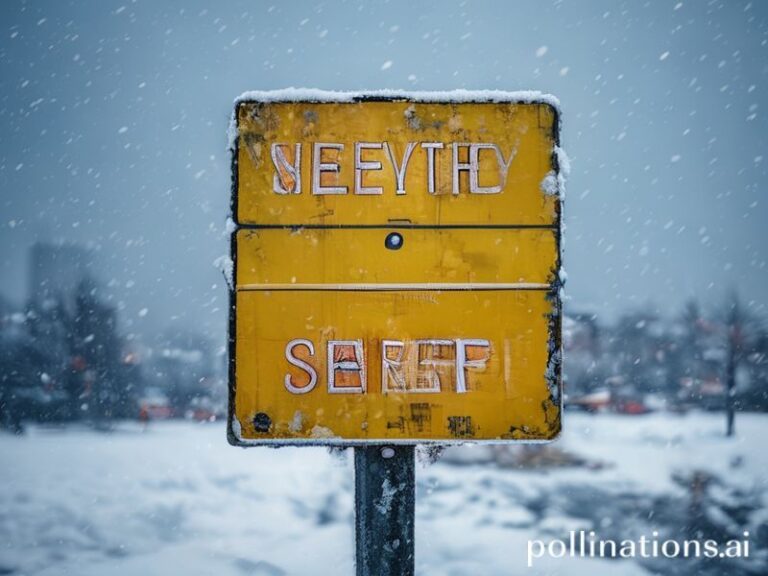Tigres vs. Atlas: When a Mexican Football Match Becomes a Global Allegory of Capitalism, Hope, and Questionable Offside Calls
Tigres vs. Atlas: A Football Match That Matters More Than Football
By Our Man in the Estadio Universitario, Still Nursing a Hangover from the Night Before
MONTERREY—Somewhere between the smoke from the carne asada stands and the tear-gas haze drifting over from a nearby protest against water privatization (because nothing says “North American trade integration” quite like parched citizens), two Mexican clubs kicked a ball around for ninety minutes. On the surface, it was just another Liga MX jornada: Tigres UANL versus Atlas F.C., a Saturday-night fixture with the usual fireworks, questionable refereeing, and one obligatory VAR-induced existential crisis.
But this wasn’t merely sport. In the grand tradition of humanity’s need to over-inflate recreational pastimes into geopolitical allegory, Tigres-Atlas became a miniature referendum on everything from neoliberal economics to the durability of hope in a century that already feels like one long blooper reel.
First, the global optics. Tigres, backed by the Cemex billions and sporting a roster that costs more than the GDP of several Pacific micro-nations, represents turbo-capitalism in cleats. Their marquee French striker—on loan from a Qatari fund that also owns a slice of Paris, London real estate, and apparently the concept of irony—scored a goal so elegant it could’ve been choreographed by the IMF. Meanwhile, Atlas arrived as the plucky underdog, the club that broke a 70-year title drought last season, proving that even in the age of sovereign wealth funds and cryptocurrency sleeve sponsors, miracles can still be crowdfunded by tequila and sheer denial.
Cue the sardonic chuckle from the press box: the same week the U.N. warned that climate tipping points are now “flirting with us like a drunk Tinder match,” 50,000 people crammed into a concrete bowl to debate whether a Uruguayan midfielder’s stoppage-time dive was simulation or interpretive dance. Priorities, dear reader, are wonderfully elastic.
Still, the match echoed well beyond Mexico. European scouts—those pan-European vultures in Patagonia vests—hovered, notebooks ready to snatch whatever raw talent might be exported, repackaged, and sold back at a 400% markup. Asian betting syndicates reportedly moved enough crypto through offshore wallets to fund a medium-sized coup. And in the United States, where Major League Soccer executives watched on a cracked iPad between focus groups, the game served as a reminder that “soccer culture” cannot be reverse-engineered with craft beer and artisanal pretzels. Some things—rage, devotion, communal despair—require centuries of failure and sunshine to ferment properly.
The broader significance? Tigres won 2-1, thanks to an offside goal so microscopic that only a Swiss quantum computer and three Jesuits could confirm it. Atlas fans trudged home singing through tears, which is the closest thing Mexico allows to therapy. Yet the result is almost irrelevant. What matters is the ritual: the chanting, the shared oxygen, the momentary illusion that 22 millionaires kicking polymer around can still knit a fractured society together. If that sounds naïve, remember that the alternative is doom-scrolling through headlines about melting ice caps and collapsing supply chains—activities far less photogenic.
In the mixed zone afterward, Tigres’ coach—a man whose postgame jacket costs more than a teacher’s annual salary—spoke of “passion, family, legacy.” A few feet away, an Atlas defender stared into the middle distance like a conscript who just realized the war was over oil, not freedom. Both statements, in their way, were true.
So here we are, exporting soap-opera drama wrapped in polyester jerseys while the planet quietly files for divorce. But maybe that’s the point: if we’re all circling the drain, we might as well sing on the way down. And if the song happens to be “Cielito Lindo,” belted by 50,000 slightly sunburnt humans who still believe next season will be better—well, that’s more global cooperation than most summits manage these days.
The final whistle blows, confetti cannons misfire, and somewhere a hedge fund updates its risk models. Life, like a poorly defended corner kick, goes on.







